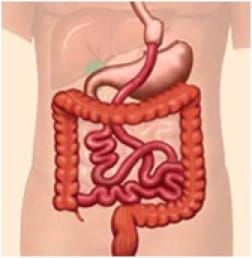Gastric Bypass Surgery involves stapling the majority of the stomach to create a smaller stomach pouch as well as a rerouting of your intestinal tract to modify how your body absorbs food. This method reduces the amount of food you can consume, but reduces the amount of calories and nutrients your body absorbs.
Approach to Weight Loss:
Gastric Bypass surgery is a restrictive process, surgically creating a smaller pouch or "stoma", which limits the amount of food one can eat, as well as the calories and nutrients absorbed by the body.
Dietary Guidelines:
Over the course of the first year, caloric intake rises from 200 calories per day within the first couple weeks after surgery to 1,000 maximum after six months and continuing forward. High fiber, high sugar and high fat foods should be avoided and as with most weight loss surgeries, protein intake is important.
Eating Habits
Your diet will consist of four to five small meals each day, along with the standard 6-8 cups of water per day, while avoiding drinking liquids during or within 30 minutes of a meal.
Nutritional Supplements:
Nutritional supplements after the surgery include Calcium, a standard multivitamin and Vitamin B12 supplements.
Operating Time:
3-4 hours
Hospital Stay:
8-9 days
Time off Work:
3 weeks
Recovery Time:
6-8 weeks
Surgery Method:
Laparoscopic
Adjustable:
No
Reversible:
No
Medical Implant:
No
Surgery Risks and Disadvantages:
As with any serious or weight loss surgery, there are the standard inherent risks of complications. Improper healing of the stapled and sealed areas can result in leakage, infection and abscess formation. Dumping syndrome may occur when consuming high-starch foods and desserts. Nausea and vomiting may occur, which may require major surgery if a stricture occurs.
Surgery Benefits and Advantages:
New developments in Gastric Bypass surgery allow many to be performed laparoscopically. The reduction in calories and nutrients absorbed by the body is larger, (called malabsorption), but can cause problems if the body does not absorb enough nutrients.
Average Weight Loss:
On average, patients will lose about 60% of their excess body weight within the first 1-2 years.*
Anatomy Changes:
The stomach is reduced in size by approximately 60-80% along its larger outer curve. This morphs the stomach into a sleeve shape.
Produce Image:



